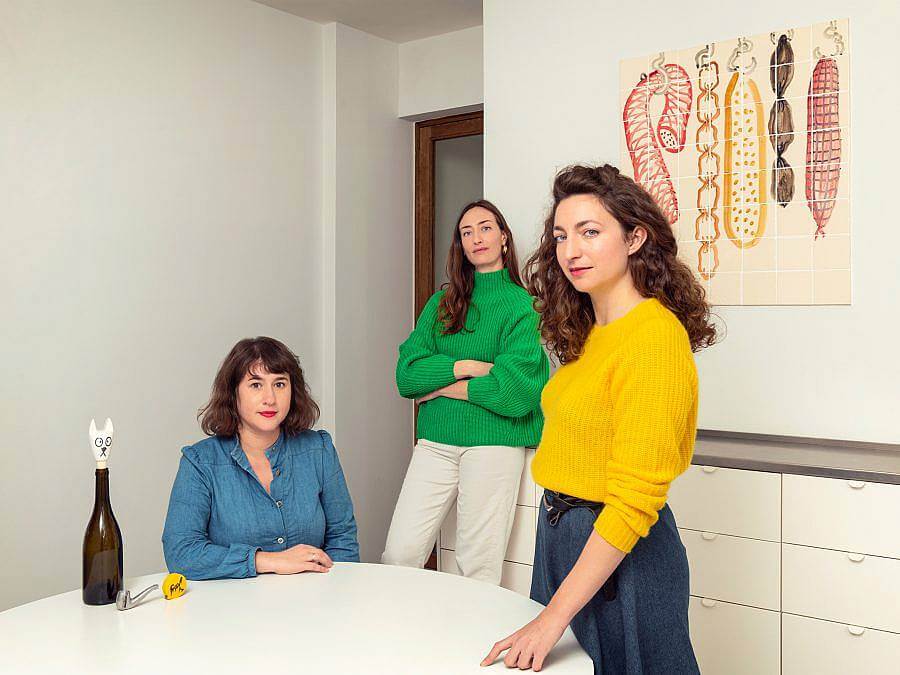How was We Do Not Work Alone founded?
It was founded by the three of us, Anna, Charlotte, and Louise, we met at the Sorbonne University in a Contemporary Art Curatorial Master’s degree program. A few years after graduating, we were curating young artists’ shows together, mostly in artist-run spaces. At one point, after working in art galleries we thought it was time for us to try and walk our own path.
What are ‘usual objects’?
The phrase is a wordplay between the french ‘usuel’ which means useful, and the irony of the false friend ‘usual’ which in English means something of a certain banality. We liked the irony because what we do is about transforming banality into an artful experience. Plus for us, all objects are the usual suspects that we might interrogate to give them a new turn.
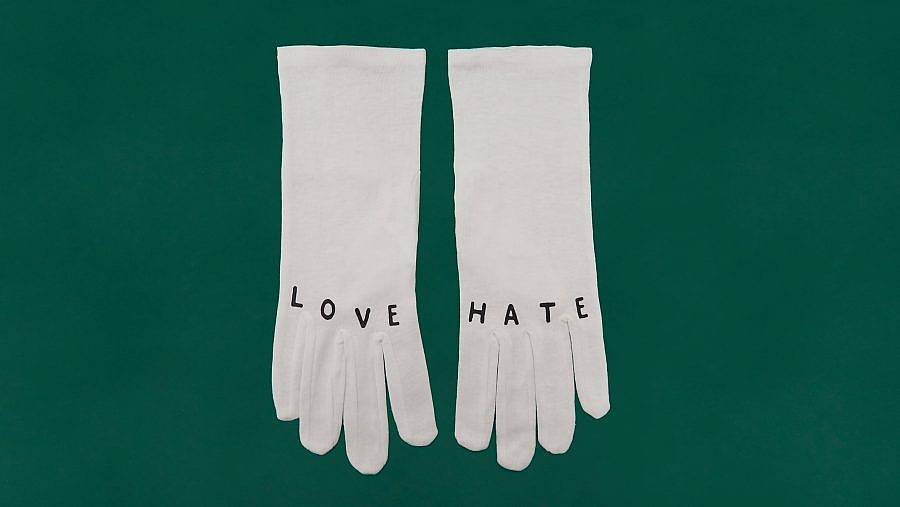
How do you view the intersection between function and form?
Aah, it is such a vast question. We like to say that what we do is about asking the question of function to artists that don’t work professionally in that matter. For an object to be “right” in our sense, it has to be a dialogue between the artist’s work, its function, and its materiality, meaning that objects production. This dialogue should result in an object that is a step aside from the artist’s usual practice as well as its own autonomous piece.
How would you describe the process you go through to prompt artists to create “usual objects”?
We invite artists we love to collaborate with us on a functional project. The artists are totally free to explore, the only obligation is function. The collaboration process is always renewed by each artist, and we adapt, often bringing craftsmen or manufacturers into the mix, to create an object that wouldn’t have existed if it wasn’t for our encounter.
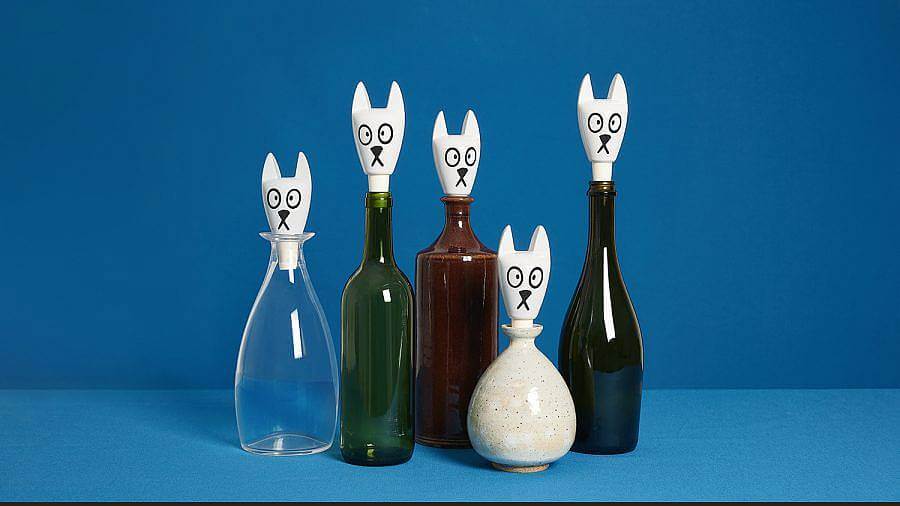
What role do you feel art has in the world of capitalism?
We are aware that a certain paradox lies in what we do. Editions are sometimes considered as an expression of the ultra commodification of the art. We view it as an operation in the democratization of art, as well as a way to enlarge the artist’s field of action. We are also very keen on defending the way our objects are produced, where we create bridges between artists and specific crafts.
Are there any artists or designers that have influenced your creative process?
Many! A great inspiration was how some artists have used everyday life objects in their creative process to create some in a never-ending movement between life and art. The champions on these matters would be Calder, Picasso, Judd, Sophie Tauber, Niki de Saint-Phalle… could go on and on about it ..!
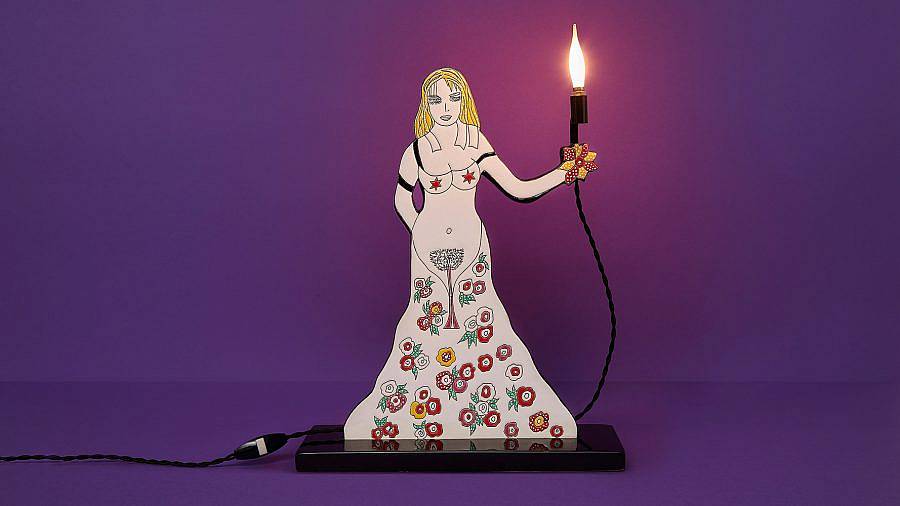
You call yourselves a “publishing house” how do you feel that term resonates with the work you do?
We see ourselves as publishers because we feel there is an invisible link between all our different editions.
How do you feel art and everyday life are related?
Our reflection comes from observing and being close to artists, art is their everyday life, as it is ours, and we wanted to share in this intimacy.
We think art is what makes life better, and the closer you get to be with it, the better. The expression of our belief is that “art is what makes life more interesting than art”, to quote Robert Filliou.
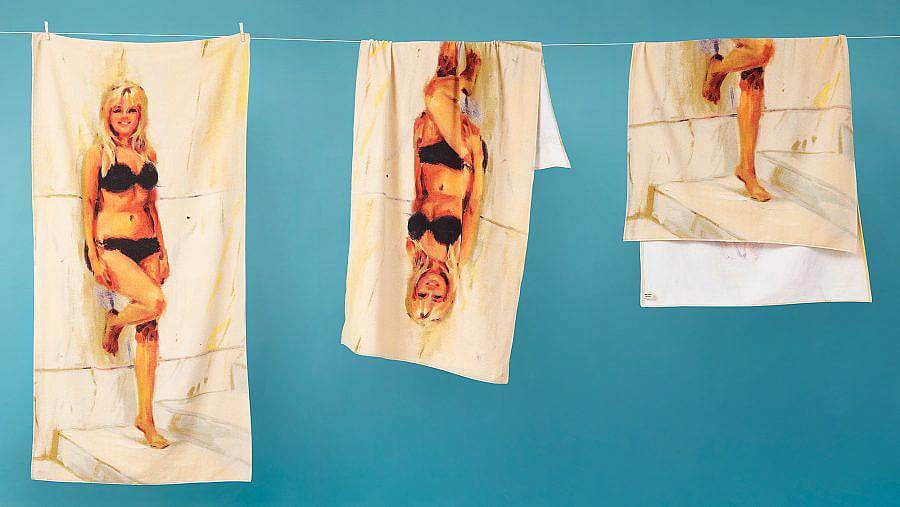
Are there any previous or current collaborations that we should know about?
Of course! We did a Butter dish with Erwin Wurm for his exhibition at The Maison Européenne de la Photographie in Paris called Little Big House Butter Dish.
We also enjoy creating new bridges between artists and craftsmen, for instance with Dorothy Iannone and the Manufacture des Emaux de Longwy, which distinctive know-how is cloisonné enamel.
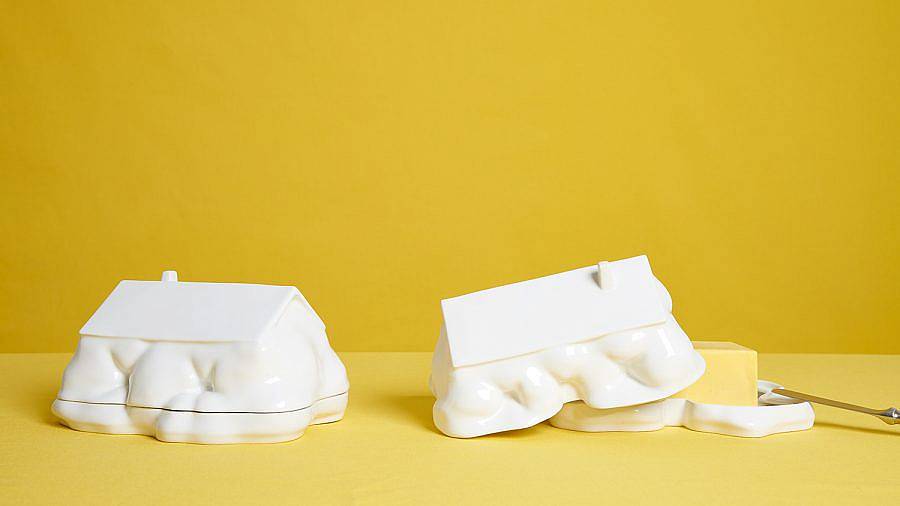
Do you have any upcoming projects?
Yes, we are working on a hammer with Belgian artist Eric Croes and a paper toilet dispenser by Lilly Van Der Stocker is on the way!
What is your studio/workspace like?
We are very happy to move into our first space in Paris, our brand new office and shop. We just finished refurbishing it in the center of the Paris, rue du Vertbois in the 3rd arrondissement. For the first time, we will have a permanent exhibition space, a very exciting perspective in times where you have to cultivate your own backyard and make the world come to you instead of being able to go to it.
